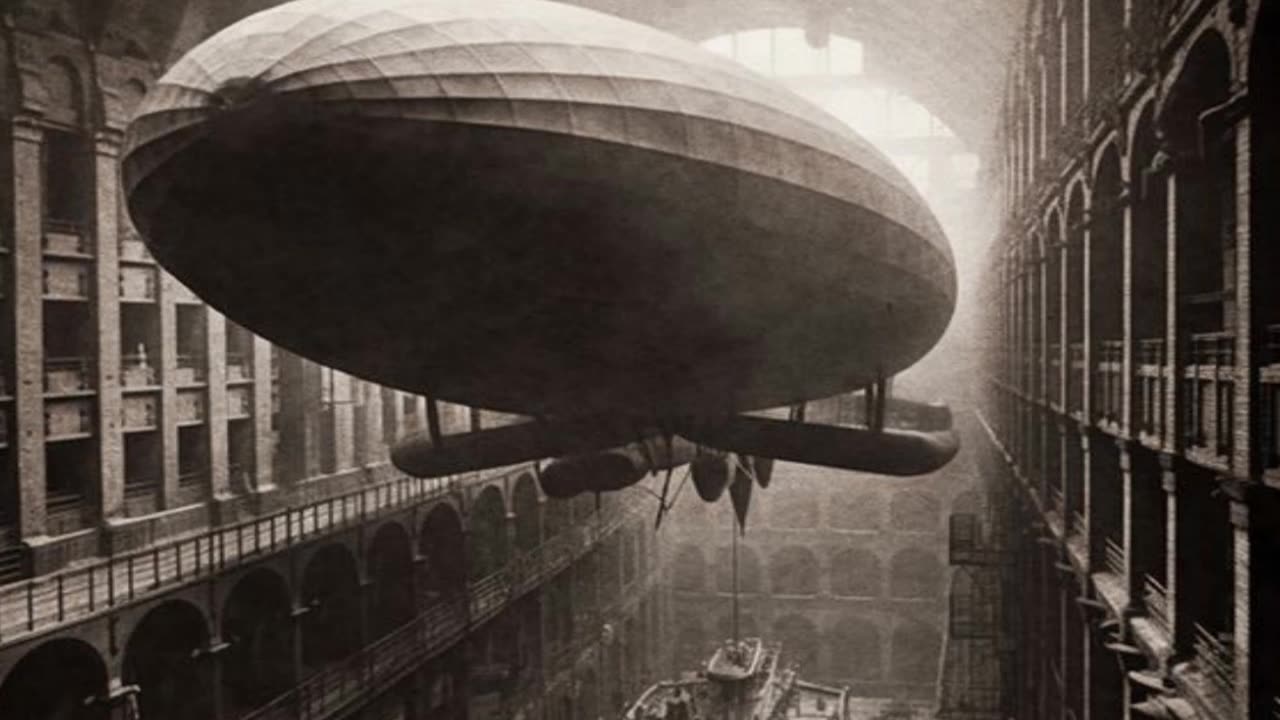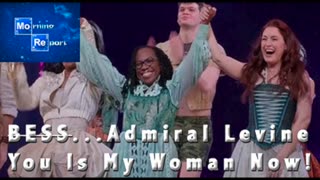Premium Only Content

Living In The Past Mother Goose Teacher Jethro Tull
Living In The Past Album: Living In The Past (1969)
Mother Goose Album: Aqualung (1971)
Teacher Album: Living In The Past (1972)
by Jethro Tull
"Living in the Past" is Jethro Tull's highest-charting single on the US Billboard and UK Singles charts. It first appeared as a 1969 single which had been recorded for their album Stand Up; however, it saw album release on Living in the Past in 1972.
One of the most famous aspects of Living In The Past is its nonstandard time signature: It uses 5/4. This puts it in the category of "quintuple meter," where there's five beats per measure. If you need some more familiar context, try singing the lyrics to "Living in the Past" to the tune from the theme from the TV show Mission: Impossible. But not too loud, lest the whole office hear you. Maybe the most famous example of this unusual time signature is "Take Five" by the Dave Brubeck Quartet.
Ian Anderson is one of the most intellectual popular artists in rock, and also one with the sliest sense of humor so "Living in the Past" is clearly poking fun at somebody, being about wishing to live in a peaceful time before a war. But is it directed at the fighters ("Now there's revolution, but they don't know what they're fighting"), or at the ones who chose to close their eyes to the fighting? We'll leave it to the jury.
Here's what Ian said: "Two or three times I have in the early days tried to write something that was deliberately in a more pop context. 'Living in the Past' was written specifically as a single, albeit a little bit of an oddball song, being in 5/4 time signature, it wasn't obviously the choice of a listening public to have a complex time signature. But I tried to work within that framework of doing something that set out with a non-common time signature, but would have some catchy appeal because of the musical rhymes and the title, and that succeeded."
As quoted in a 1984 interview for the UK music magazine Kerrang!, Ian Anderson said of Living In The Past: "To be honest, I've always loathed and detested that song. In fact, when it was first a hit, I used to hide in a corner and cringe. But the guys in the band now are keen to play it, and you know, I'm beginning to grow accustomed to the damn thing."
A bit if trivia, Ian Anderson became a big-shot businessman. He managed a string of successful salmon farms, dealt in guns, and owned a group of other non-music-related businesses. Oh, and don't forget his hobbies, which include wild cat sheltering, motorcycling, and Indian cuisine.
Anderson told Mojo December 2011 that he wrote Living In The Past after Jethro Tull's manager, Terry Ellis, challenged him to write a hit single, "to keep the pot boiling." To humour him Anderson replied, "Sure Terry, just give me a couple of hours and I'll run upstairs to my room and write a hit single, as you do." So the Jethro Tull frontman "fiddled around with an acoustic guitar and a flute line, and it was done, really, in a couple of hours." And "to further humor Terry and amuse me, I decided I'd write the least commercial thing I could by using an uncommon 5/4 time signature and a definitely not-trendy title, 'Living in The Past.'"
Ian Anderson explained Living In The Past's meaning to Mojo: "Lyrically it was a bit of a rejection of the swinging fashion of that post-Beatles, slightly hippy idealistic period," he said. "There were a lot of people talking pompously about love and peace and revolution and, you know, people then as now were quick to jump up and scream and shout, but they're not actually really quite sure what they're stamping their feet about."
With Tull keyboard player John O'Hara handling the arrangements, Ian Anderson reworked Living In The Past with the Carducci Quartet for the album Jethro Tull: The String Quartets, released in 2017. This version, titled "In the Past," opens with the 5/4 riff played with plucked strings.
"Mother Goose" is the fourth track from their album Aqualung which was released in 1971.
"Mother Goose" was written by Ian Anderson. Anderson, who recalled writing the song in the summer of 1970, singled out the song as one of the earliest written for the band's 1971 album, Aqualung. He also noted the song as being somewhat atypical of his writing style, commenting, "I tend to be more in social realism, in terms of subject matter, but I do stretch to the more whimsical, surreal songs like 'Mother Goose'." Anderson, who has also called the song a "surrealistic pastiche with summery motives", views the song as an expression of visual art:
"Music was such a natural extension of the thing that we were principally interested in, which was the visual arts. ... I can go back to the very early songs of Jethro Tull on the Aqualung album; things like "Mother Goose", for example; it's a visual reference. Right now I can see the picture in my head from which those words came."
The song has since appeared on several Jethro Tull compilation albums, including The Best of Jethro Tull - The Anniversary Collection (1993), The Best of Acoustic Jethro Tull (2007), and 50 for 50 (2018). The song also appears in live form on Ian Anderson Plays the Orchestral Jethro Tull (2005) and Aqualung Live (2005).
Teacher tells the story of a socially awkward fellow who buys plane ticket for a more jovial chap (the "teacher") so they can go on vacation together. On the trip, the freeloader ends up having all the fun while the narrator remains as neurotic as ever.
Teacher's an odd storyline for a Jethro Tull song, but it's also one of just a few songs that Ian Anderson wrote strictly for mass appeal. When we asked Anderson if there was a specific inspiration for the song, he replied: "Only in as much as it was the need to come up with a pop song format that might get us some radio play or be in the singles charts. It was a deliberate attempt to write a piece of more generic pop/rock music. Which is probably why I don't really like it very much. It just seemed a bit forced, a bit too structured in that kind of vein. So it's not one that I'm comfortable with at all, no."
Ian Anderson: flute, acoustic guitar, percussion, vocals, backing vocals
Martin Barre: acoustic and electric rhythm guitar, percussion
Jeffrey Hammond: alto recorder, backing vocals (Credited on Aqualung album as Jeffery Hammond-Hammond)
Clive Bunker: percussion
John Evan: Mellotron
The Mellotron was replaced by the accordion on the Aqualung Live album played by Andrew Giddings.
-
 3:30:40
3:30:40
MrNellyGB
5 hours ago🔴LIVE - GRINDING MARVEL RIVALS RANKED! | #RumbleTakeover #RumblePremium
9.27K -
 1:23:42
1:23:42
Game On!
16 hours ago $7.54 earnedPatrick Mahomes is GOOD TO GO! Chiefs ready to DISMANTLE the Texans!
50.1K5 -
 8:38:13
8:38:13
Dr Disrespect
1 day ago🔴LIVE - DR DISRESPECT - MARVEL RIVALS - I AM GROOT
369K73 -
 5:58:38
5:58:38
Fresh and Fit
17 hours agoResponding To Druski Skit, Tate Case Win, Fuentes Assassination Attempt & MORE
263K83 -
 4:13:32
4:13:32
Nerdrotic
21 hours ago $79.38 earnedSUPERMAN Drops, Disney Cuts WOKENESS? Hollywood DEI is DEAD | Friday Night Tights 333 Little Platoon
202K81 -
 1:23:14
1:23:14
Talk Nerdy 2 Us
17 hours agoSpecial Guest - Next UFC Superstar - Dani Aleksovska
104K2 -
 43:59
43:59
PMG
21 hours ago $0.34 earned"Hannah Faulkner and Chrissy Clark | PROPAGANDA EVERYWHERE!!!"
1.66K -
 12:55
12:55
Ethical Preparedness
18 hours ago $0.42 earnedApocalyptic Forbidden Pain Killing Plant Your Doctor Hides from You - Post Collapse Prepper Medicine
1.17K15 -
 31:16
31:16
CutJibNewsletter
16 hours agoChristmas and Hanukkah greetings from Two Jews with 20 opinions!!!
1.12K2 -
 1:02:40
1:02:40
Man in America
19 hours agoThe Elites Are Losing Their War on Our Children w/ Robert Bortins
91.5K49